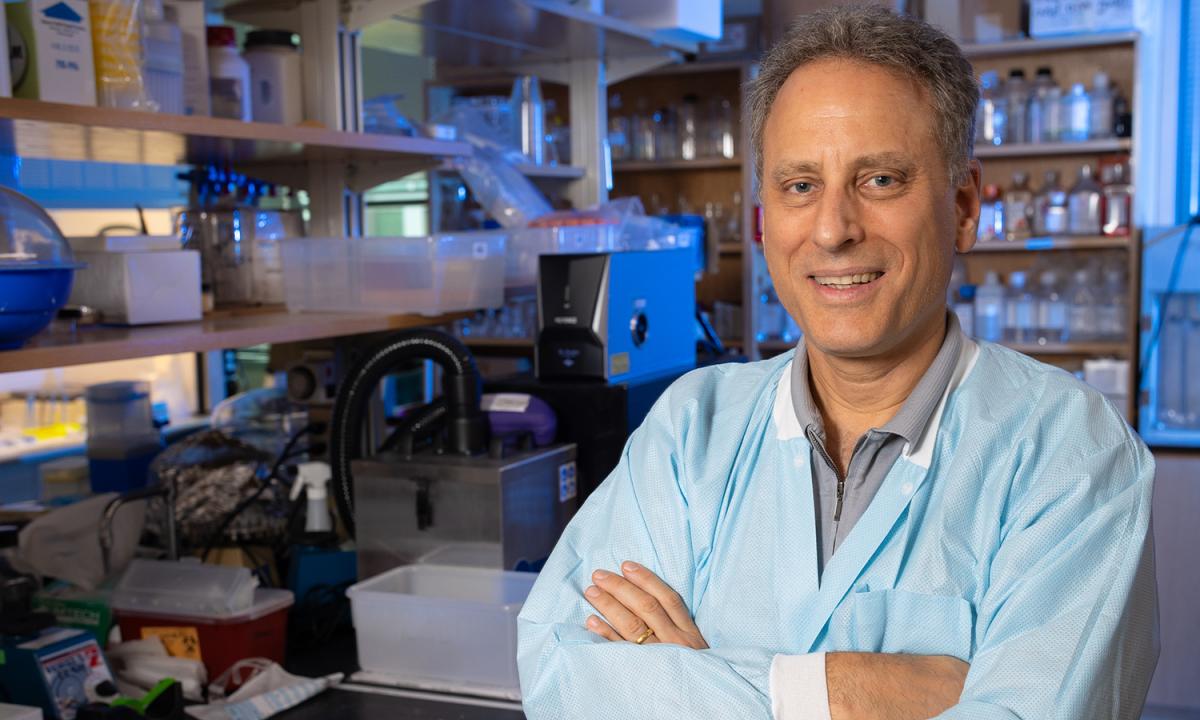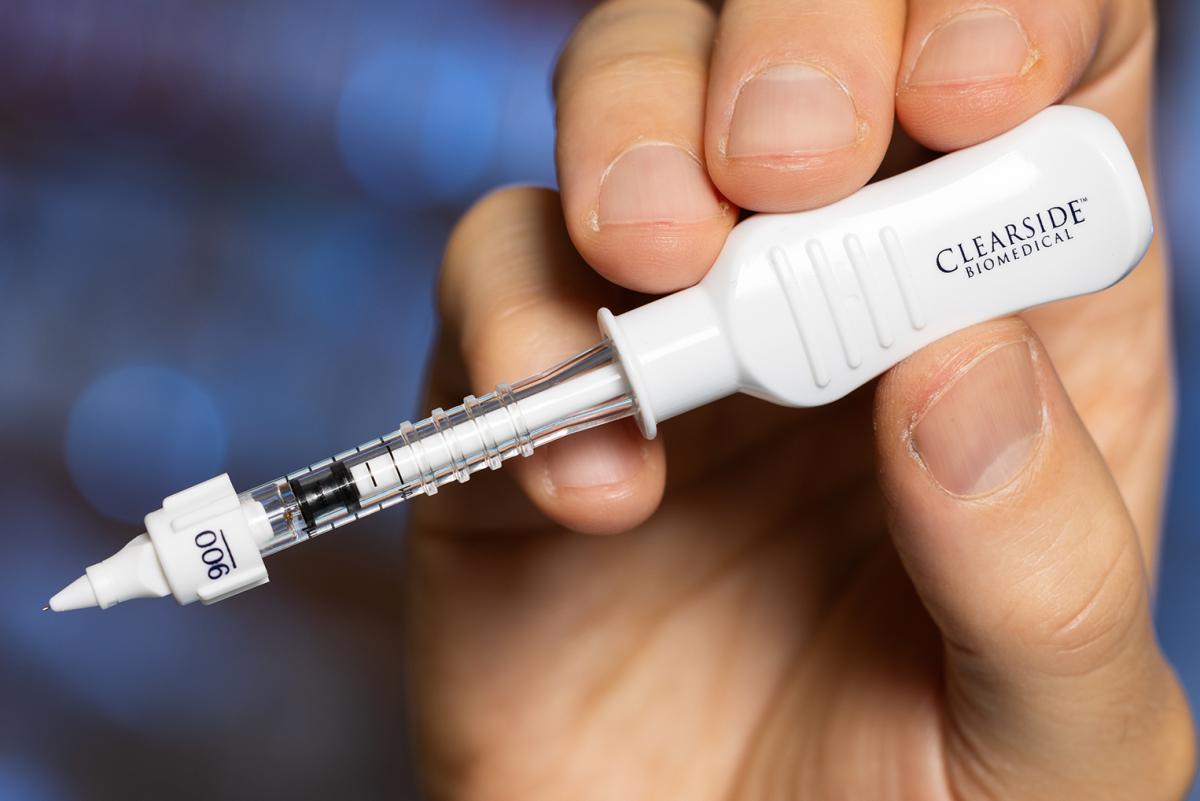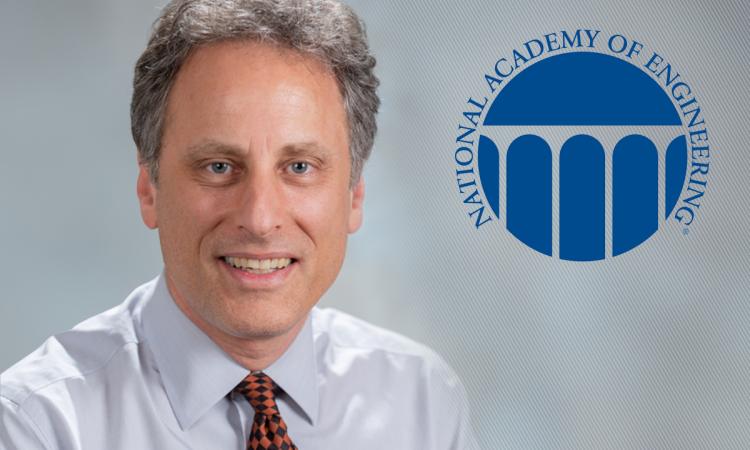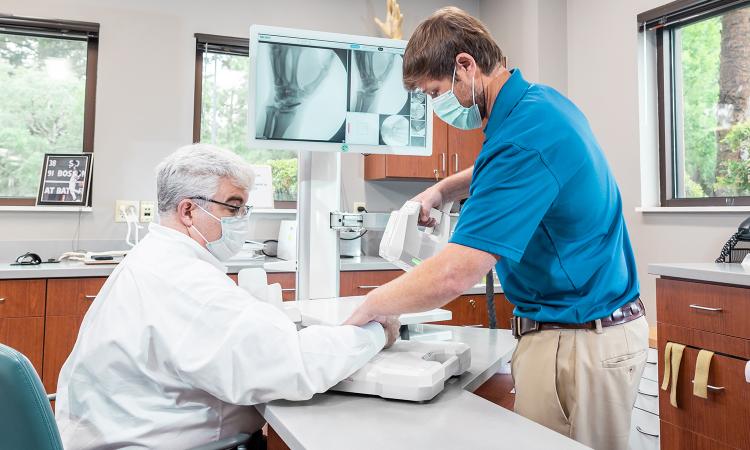The chemical engineer, microneedle pioneer, and entrepreneur is the fourth College of Engineering faculty member to join the Academy since 2020.
(text and background only visible when logged in)

(text and background only visible when logged in)
For his work creating new kinds of drug delivery techniques and bringing those technologies to patients, Mark Prausnitz is one of the new members of the National Academy of Medicine (NAM).
The Academy announced his election Oct. 21 alongside 99 others. Membership in NAM is considered one of the highest recognitions in health and medicine, reserved for those who’ve made major contributions to healthcare, medical sciences, and public health. The roster is small: only 2,400 or so individuals have been honored.
“It’s an honor to be elected to the National Academy of Medicine and have the work of our team at Georgia Tech recognized in this way,” said Prausnitz, Regents’ Professor and J. Erskine Love Jr. Chair in the School of Chemical and Biomolecular Engineering.
The Academy cited Prausnitz for innovating microneedle and other advanced drug delivery technologies. He also was honored for translating those methods and devices into clinical trials and products and founding companies to bring the advances to patients. NAM praised Prausnitz for “inspiring students to be creative and impactful engineers.”
It’s the second straight year Prausnitz has been elected to a National Academy. He joined the National Academy of Engineering in 2023.
Prausnitz focuses on creating systems that make drugs work better and make them more accessible by simplifying administration. That means important therapies can be easily delivered at home, in emergency situations, or in developing countries.
One of his primary technologies is microneedles. His team has developed patches to painlessly deliver drugs and vaccines through the skin. They also put microneedles on what they call STAR particles, which can be rubbed onto the skin to promote absorption of dermatological drugs and cosmetics.
He has launched nine companies, largely based on microneedle technology developed at Georgia Tech. They have raised more than $350 million in financing. A product using microneedles for targeted injection into the eye was the first U.S. Food and Drug Administration-approved drug therapy developed at Georgia Tech.
So far, Prausnitz’s innovations have been studied in more than 20 human clinical trials.
“I became interested in this work because I can use my training in engineering to solve problems that improve the health of people in the United States and around the world,” Prausnitz said. “I also enjoy working in the area of pharmaceuticals because of its interdisciplinary nature, drawing not only from science and engineering, but also from medicine, public health, public policy, and other fields.”
Other projects have included a microneedle patch to deliver measles and rubella vaccines that recently completed phase 1 and 2 clinical trials in Gambia. Prausnitz’s company Micron Biomedical ran the trial using a patch developed at Georgia Tech. He has created low-cost, painless, and bloodless tattoos that can be self-administered and used in place of medical alert bracelets that communicate serious medical conditions such as diabetes, epilepsy, or allergies.
Prausnitz also introduced a new method to simplify the complexity of delivering vaccines through a handheld electroporator. His team used short electric pulses to drive molecules into cells using a pen-size device that requires no batteries and can be mass produced at low cost.
Prausnitz is the fourth current Georgia Tech faculty member elected to NAM, all within the last four years.
Pediatrician and biomedical engineer Wilbur Lam was elected in 2023. Mechanical engineering and Petit Institute for Bioengineering and Bioscience Executive Director Andrés Garcíabecame a member in 2021. And in 2020, the Academy added Susan Margulies, then chair of the Wallace H. Coulter Department of Biomedical Engineering. She’s now leading the National Science Foundation’s engineering directorate and remains on the Coulter BME faculty.
Robert Nerem, who died in 2020 and was founding director of the Petit Institute, was elected in 1992.

[Prausnitz] has launched nine companies, largely based on microneedle technology developed at Georgia Tech. They have raised more than $350 million in financing. A product using microneedles for targeted injection into the eye was the first U.S. Food and Drug Administration-approved drug therapy from Georgia Tech.

(text and background only visible when logged in)
(text and background only visible when logged in)
Related Content

Mark Prausnitz Elected to National Academy of Engineering
The honor is one of the highest professional distinctions for engineers.

FDA Approved
Several alumni and faculty members have received FDA approval for devices and procedures in recent years — and are preparing to do it again.

Wilbur Lam Elected to National Academy of Medicine
Lam is a biomedical engineer and pediatrician whose work has included leading national efforts to rapidly verify Covid-19 tests and get them to market.
(text and background only visible when logged in)